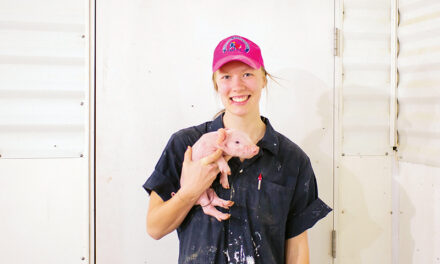WINCHESTER – Local food trucks in North Dundas have a newly updated bylaw to deal with.
The new bylaw replaces one passed in 1998 and incorporates several ideas from other municipalities.
An introduction to the new bylaw stated: “The current bylaw to regulate and licence mobile food premises, has not been updated since 1998. A comprehensive search of neighbouring bylaws has been conducted; and this bylaw is reflective of conditions adopted by many other municipalities.”There have been some major changes to the old bylaw such as the elimination of various categories of licences, for example stationery units versus those that can be driven, and pre-packaged food as opposed to food prepared in the truck.
The new bylaw keeps the annual fee of $300 for residents and $600 for nonresidents and that fee can be applied to all types of trucks and food.
The requirement for property taxes to be up to date before allowing a mobile food truck on the premises has been removed, and all stationary and mobile food trucks must be licensed, but the council may waive the fee for non-profit or volunteer organizations.
The liability insurance for the business has been increased to $2,000,000 from $1,000,000.
A new requirement is that food trucks have to be inspected by the location’s fire chief.
There are still fines for non-compliance to the rules, and the bylaw requires a vendor to think carefully about other food business they may be adjacent to.
The food trucks will have to be responsible for maintaining the cleanliness of their area with respect to garbage.
The bylaw states: “Where council deems it appropriate, fundraising events by a volunteer or not-for-profit organization can be exempted from any fee, and a “Special Event of Municipal Significance” has been added to the bylaw which exempts them from fees and sets back provisions, as these events are typically located in township parks, on the street or in parking lots for example Ride for Dad and Bike Nights.
Also added to the new bylaw is a section regarding a mobile food operation located on private property that is occupied by a legally permitted agri-tourism operation, or on private property that has a legally permitted commercial use that is commercially assessed.

Joseph Morin is the Editor of the Eastern Ontario AgriNews, and the Record. He is, despite years of practice, determined to eventually play the guitar properly. He has served the Eastern Ontario community as a news editor, and journalist for the past 25 years with the Iroquois Chieftain, Kemptville Advance, West Carleton Review, and Ottawa Carleton Review in Manotick. He has never met a book he did not like.










